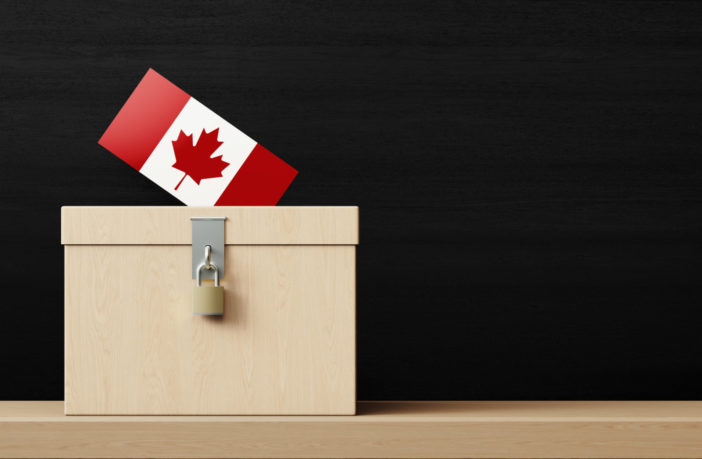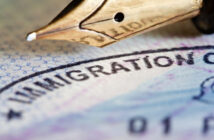Hours after the polls closed in Canada on Monday night, President Donald Trump tweeted, “Congratulations to @JustinTrudeau on a wonderful and hard fought victory. Canada is well served.”
Trudeau’s “victory” was hardly convincing. The prime minister’s Liberal Party actually garnered fewer votes (33.1 percent) than the Conservative Party (34.4 percent) and may now align with the socialist New Democratic Party to form a minority government.
For Canada’s immigration enthusiasts, the election was a solid win. The People’s Party of Canada, the lone voice for reducing immigration levels, was trounced. All 300 of its candidates, including leader Maxime Bernier, lost. PPC couldn’t even get traction in Bernier’s home province of Quebec, where the infamous Roxham Road has become a conduit for tens of thousands of illegal aliens crossing into Canada from upstate New York.
“We do hear Canadians concerned about immigration, but the way it was framed with the PPC didn’t resonate with more than a handful of Canadians across the country,” said Simon Fraser University political science instructor Stewart Prest.
As Canada’s National Observer saw it, “There remains evidence of an underlying, largely unaddressed unease within the electorate, which is split, roughly equally, into those who support high levels of immigration, those who oppose it and those who support it with conditions.” Bottom line: The country is triangulating toward more immigration.
In a recent Pew Research Center poll, 68 percent of Canadians said immigrants make the country stronger — the highest percentage of 18 countries surveyed.
Though an exact voter breakdown is not yet available, Liberals clearly benefited from immigrants at the polls. The party won 84 percent of majority-immigrant districts in the 2015 national election; City News Toronto reported that voter turnout in high-immigrant districts continued to climb this year.
Canada’s ever-rising tide of new arrivals – first-generation immigrants now account for one of every five people in the country – will surely beget more newcomers. Liberals, NDP and even mainstream Conservatives all support raising admissions annually. Trudeau has also promised to broaden and expand family reunification programs.
“Immigration levels are poised to rise even further under a Liberal minority government. Canada could aim for approximately 370,000 immigrants by 2023,” noted the Canada Immigration Newsletter.
With the Liberal pledge to waive citizenship fees for eligible permanent residents reflecting Ottawa’s warm and inviting immigration policies, Monday’s election results indicate that Trudeau’s welcome wagon will keep on rolling.
There are two cautionary lessons here for Americans who desire a sustainable immigration system.
First, trying to be Trudeau-Lite on immigration didn’t help Conservatives defeat a Liberal prime minister any more than Mitt Romney’s version of Obama-Lite did in 2012.
Second, poorly conceived immigration policies eventually develop not only a constituency of their own, but voting blocs of people who have a personal stake in perpetuating and expanding them.





1 Comment
Pingback: Canada Triangulates Toward More Immigration – The Importance of Business